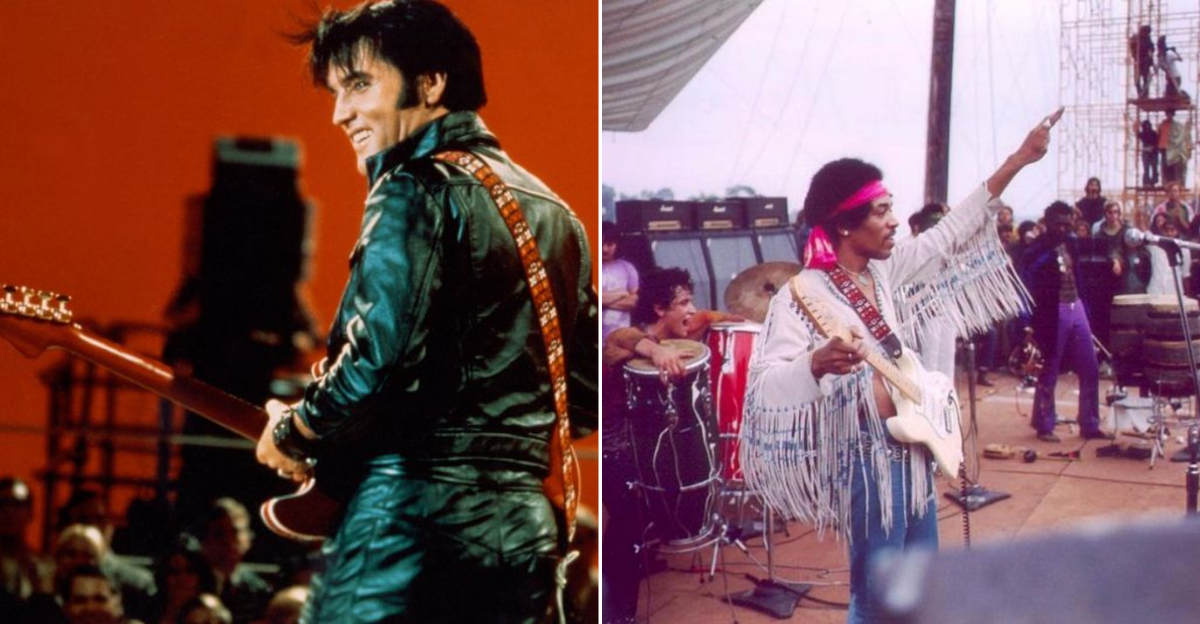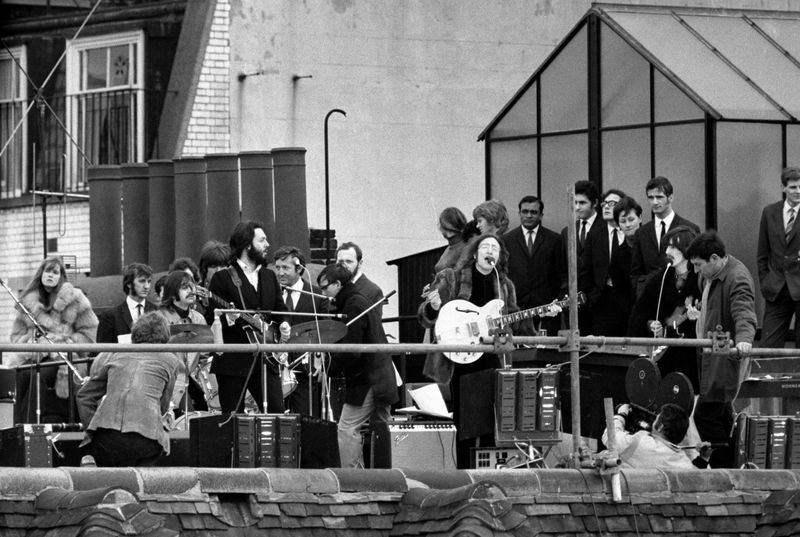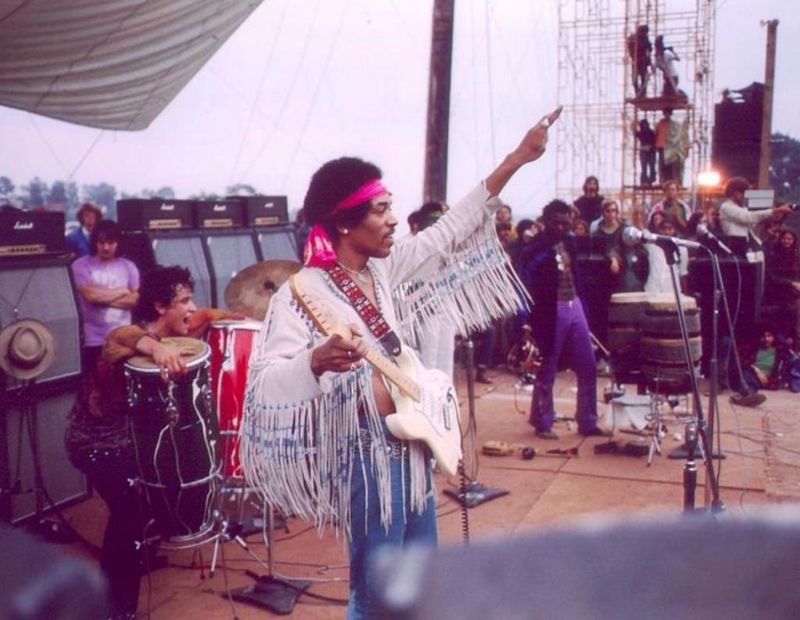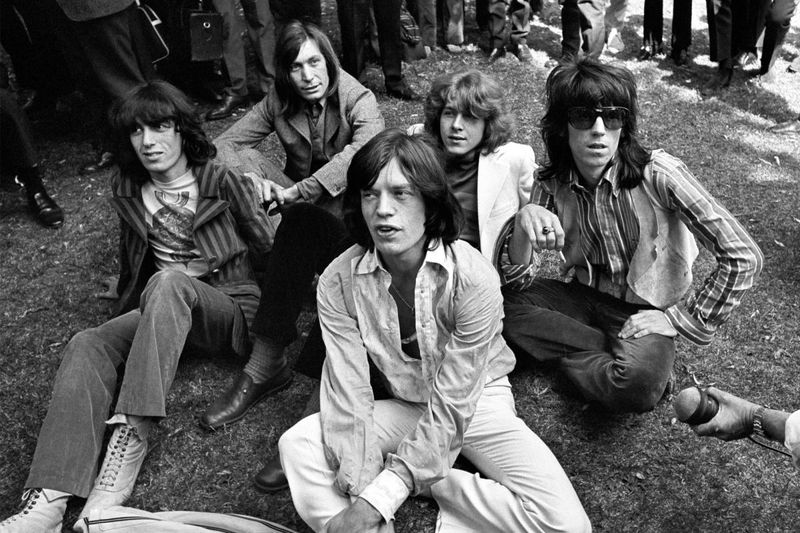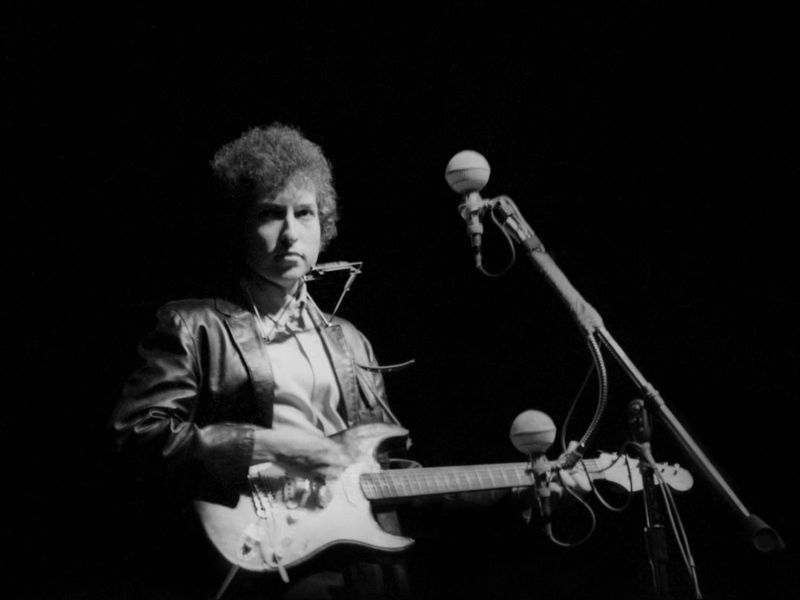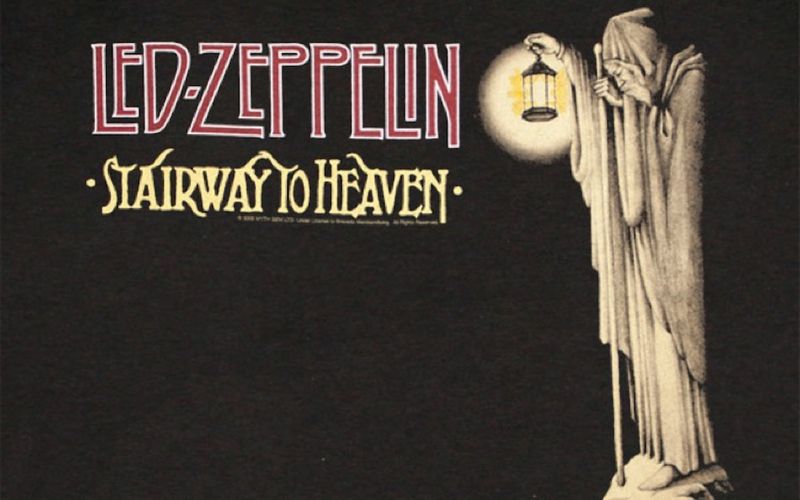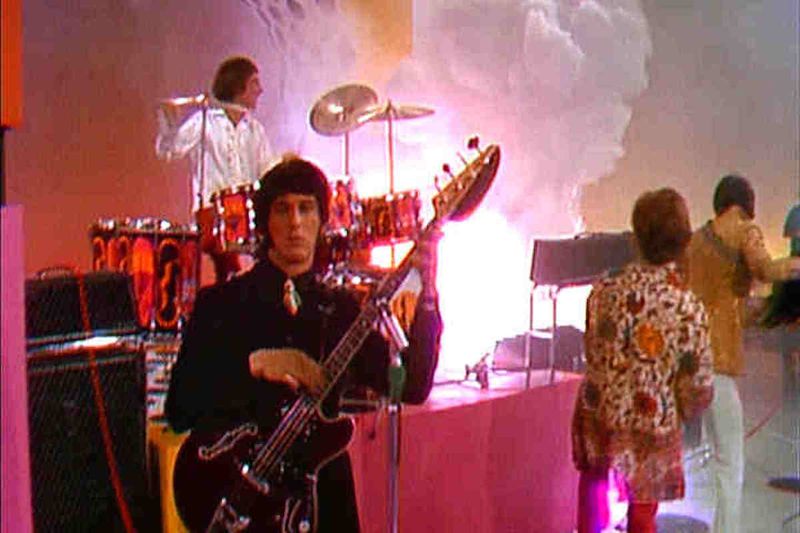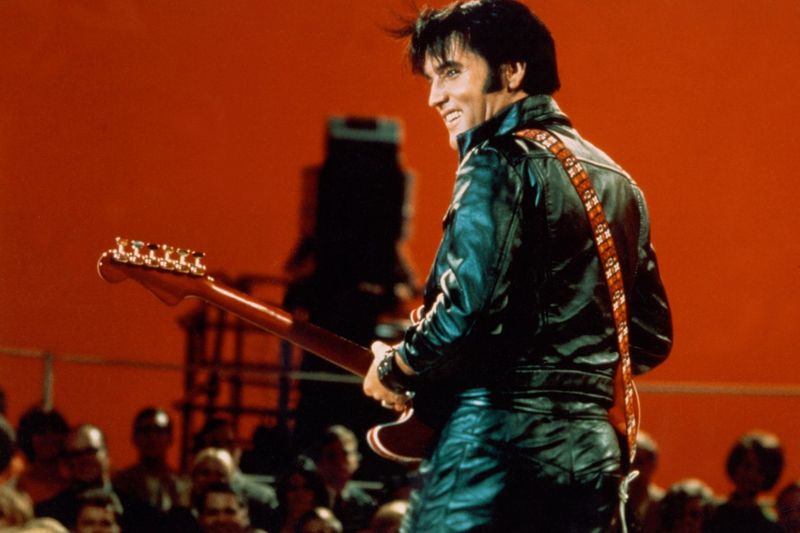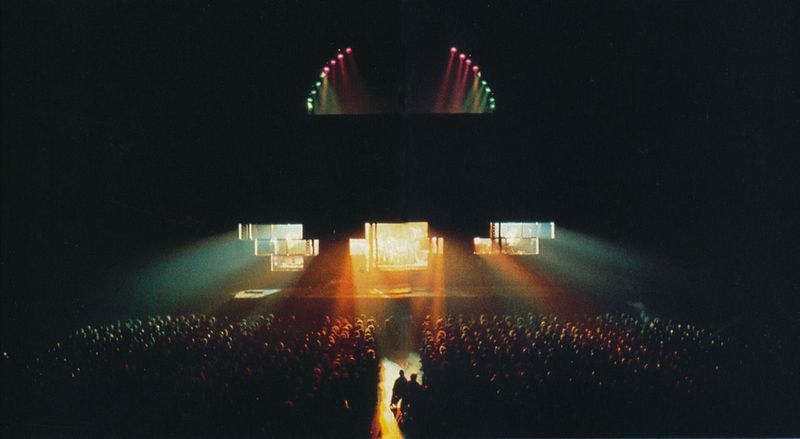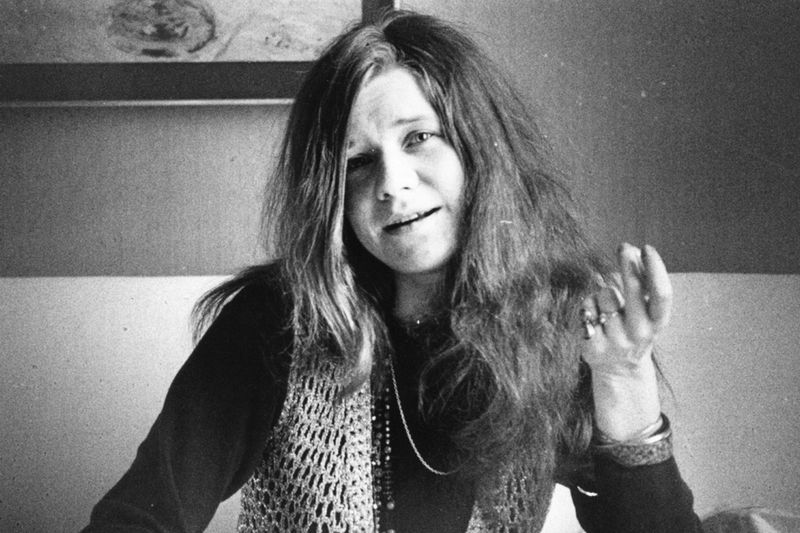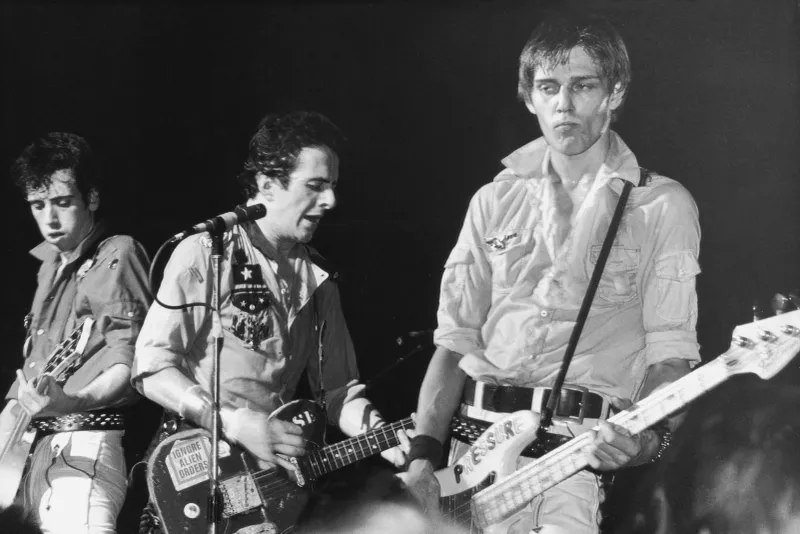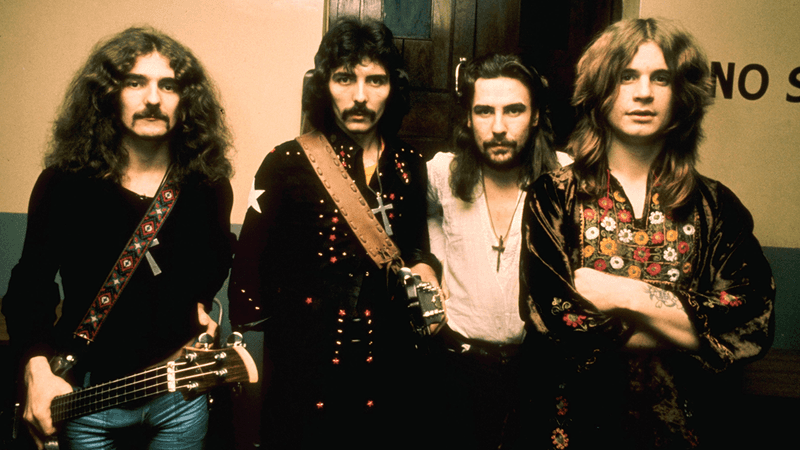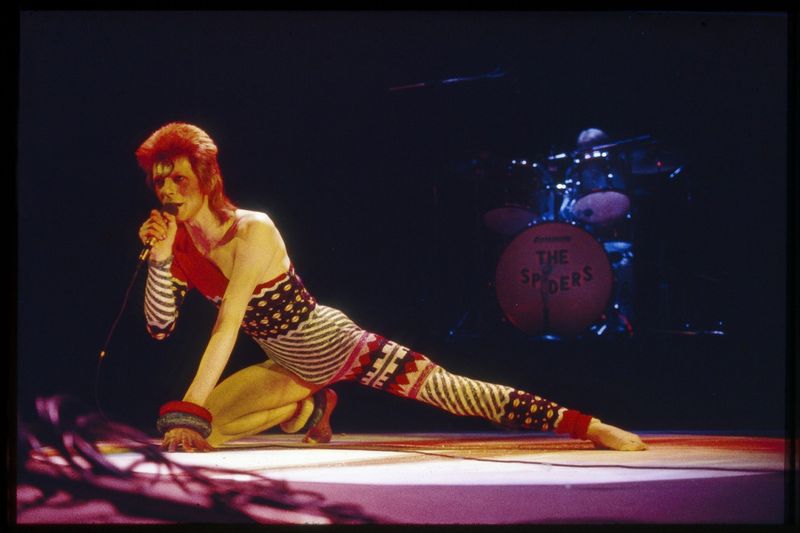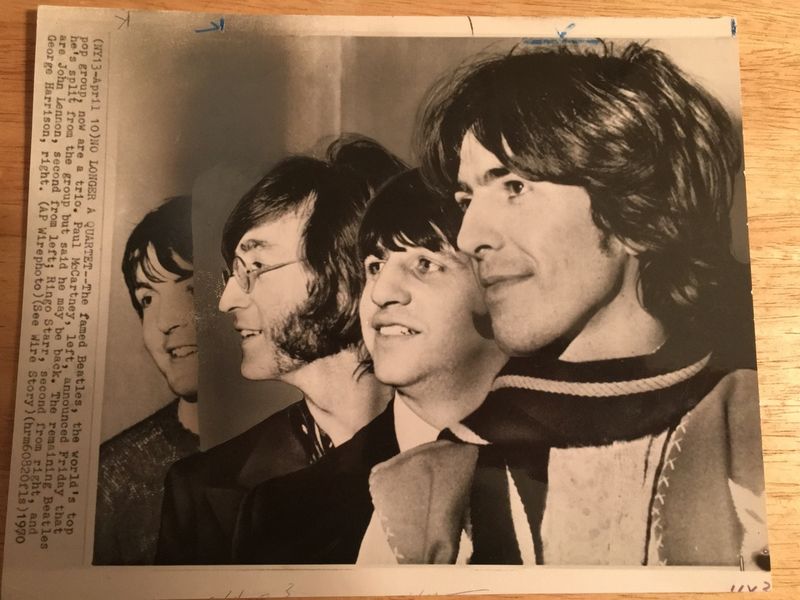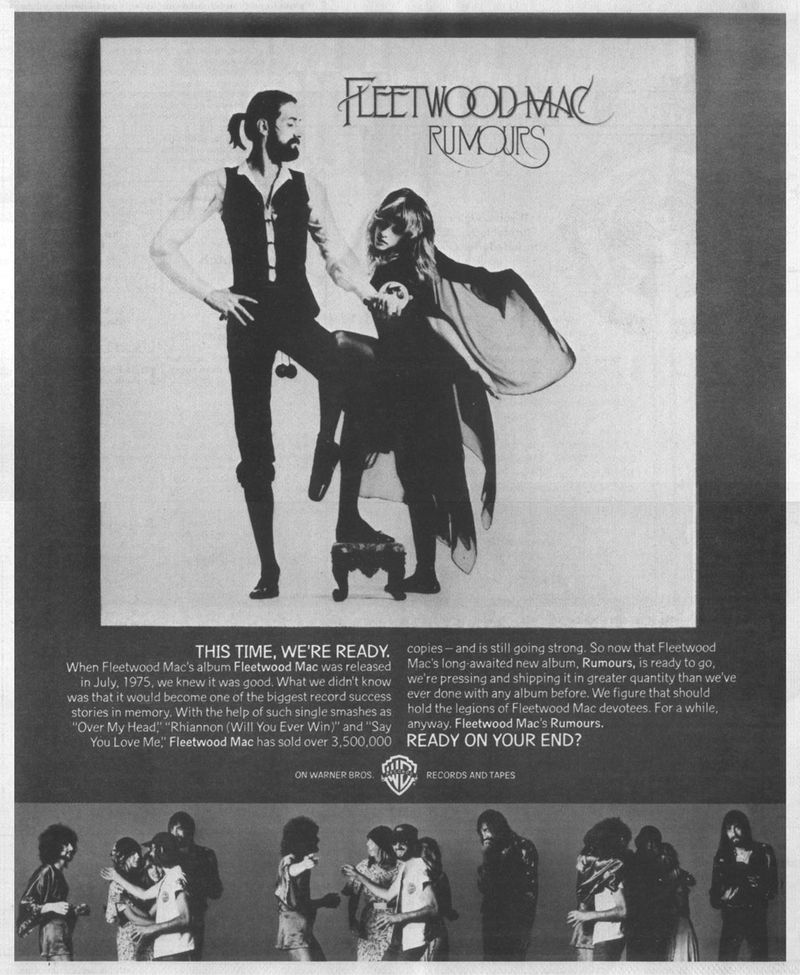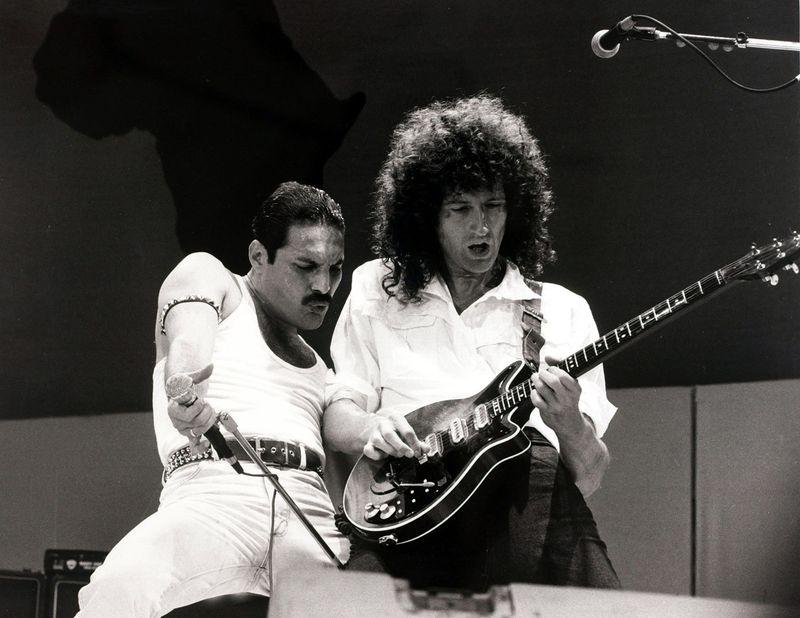Explore the legendary moments that defined rock music in the 60s and 70s. These unforgettable events shaped the genre and left an indelible mark on music history.
1. The Beatles’ Final Concert on a Rooftop (1969)
The Beatles gave their last public performance on the rooftop of Apple Corps in London. The impromptu concert was cut short by police but became legendary. Their music echoed across the streets as surprised onlookers gathered.
This spontaneous event captured the essence of the 60s—rebellion and creativity. As the Fab Four performed, their harmonious melodies filled the air, leaving fans both nostalgic and inspired. This rooftop gig symbolized the end of an era.
It remains one of rock’s most iconic performances, a testament to The Beatles’ lasting influence on music and culture.
2. Jimi Hendrix’s National Anthem at Woodstock (1969)
Jimi Hendrix’s rendition of “The Star-Spangled Banner” at Woodstock is iconic. His guitar screamed through the festival, echoing the turbulence of the era. This distorted anthem became a defining moment of the counterculture, blending music with political expression.
Audience members were left in awe as Hendrix’s fingers danced across the guitar strings. It was an electrifying performance, capturing the spirit of rebellion.
Hendrix transformed the stage into a canvas of sound, painting a picture of both chaos and hope. His legacy was cemented, forever redefining musical boundaries with this unforgettable act.
3. The Rolling Stones’ Tragic Altamont Concert (1969)
The Rolling Stones’ Altamont concert, intended as a West Coast Woodstock, turned tragic. With Hell’s Angels as security, violence erupted, leading to a fan’s death. The free concert’s atmosphere quickly shifted from celebratory to chaotic.
Mick Jagger’s voice couldn’t soothe the escalating tensions. This event marked a dark turn in rock history, highlighting the era’s complexities. It served as a wake-up call, contrasting the peace and love ethos.
Despite the tragedy, the Stones’ music played on. Altamont remains a somber reflection on the turbulent late 60s.
4. Bob Dylan “Goes Electric” at Newport (1965)
Bob Dylan shocked the Newport Folk Festival by plugging in his electric guitar. Folk purists were outraged, feeling betrayed by his shift. Yet this bold move marked a pivotal change in rock history.
Dylan’s electric sound resonated, blending folk with rock, a revolutionary fusion. His set was met with mixed reactions, but his innovation couldn’t be denied. This moment signified a break from tradition, embracing new musical possibilities.
Dylan’s electric performance remains a turning point, illustrating his influence in bridging musical genres and redefining expectations.
5. Led Zeppelin’s “Stairway to Heaven” Shakes the World (1971)
Led Zeppelin’s “Stairway to Heaven” was a monumental release, shaking the rock world. Its haunting melody and poetic lyrics captivated listeners, cementing Led Zeppelin’s status as rock gods.
The song’s progressive build, from acoustic to electric, was groundbreaking. Fans were mesmerized by its intricate composition and emotional depth. “Stairway to Heaven” became an anthem, transcending generations.
This track, often hailed as the greatest rock song, demonstrated Zeppelin’s musical prowess. It left an indelible mark on rock, inspiring countless artists. Its legacy continues, a timeless masterpiece in rock history.
6. The Who’s Drum Kit Explodes on Live TV (1967)
The Who delivered an explosive performance on The Smothers Brothers Comedy Hour. Keith Moon, known for his wild antics, rigged his drum kit with explosives. The result? A blast that left audiences shocked and Pete Townshend temporarily deafened.
Moon’s stunt was a testament to The Who’s rebellious spirit. Their live performances were unpredictable, full of energy and chaos. This incident encapsulated the raw power of rock, pushing the boundaries of televised performances.
The memory of that explosive moment remains vivid, a symbol of rock’s untamed nature.
7. Elvis Presley’s ’68 Comeback Special
Elvis Presley’s ’68 Comeback Special was a pivotal moment in his career. After years focused on films, Elvis returned to the stage. Dressed in black leather, he captivated audiences with his charisma and powerful voice.
The special reintroduced Elvis as the King of Rock ‘n’ Roll, proving his timeless appeal. Fans were reminded of his groundbreaking influence on music. His performance was dynamic, blending old hits with new material.
Elvis’s comeback was not just a return; it was a reassertion of his iconic status. The special remains a treasured piece of rock history.
8. Pink Floyd’s “The Wall” Live Shows (1979-1981)
Pink Floyd’s live shows for “The Wall” were spectacles of sight and sound. The band pushed the limits of live performances with elaborate stage setups. Massive inflatable puppets and an actual wall being built and torn down captivated audiences.
The shows were theatrical experiences, merging music with visual art. Fans were immersed in a journey of alienation and rebellion.
Pink Floyd’s creativity redefined what a concert could be. These performances left a lasting impression, showcasing the band’s artistic vision. “The Wall” live shows remain legendary, a pinnacle of rock’s theatrical potential.
9. Janis Joplin’s Final Recording Session (1970)
Janis Joplin’s final recording session was a poignant farewell. Just days before her untimely death, she recorded “Mercedes Benz.” This a cappella track was raw and haunting, a reflection of her powerful voice.
Joplin poured her soul into the recording, leaving an indelible mark. Her voice, full of emotion, resonated deeply with fans. It was a bittersweet moment, highlighting the fragility of life. Joplin’s legacy lived on through her music, inspiring generations.
Her final session remains a testament to her unparalleled talent and spirit. Janis was gone too soon, but never forgotten.
10. The Clash Brings Punk to America (1979)
The Clash’s 1979 tour brought punk rock to America with a bang. Their album “London Calling” was revolutionary, challenging musical norms. The band’s raw energy and political lyrics resonated with a new wave of fans.
Their American tour showcased punk’s rebellious spirit, breaking barriers. The Clash’s influence reached far beyond music, impacting fashion and culture.
Their performances were electric, filled with passion and defiance. Punk was no longer just a British phenomenon; it was a global movement. The Clash helped shape the future of rock, leaving an enduring legacy.
11. Black Sabbath Invents Heavy Metal (1970)
Black Sabbath’s debut album in 1970 laid the foundation for heavy metal. Their dark, heavy riffs and ominous lyrics were groundbreaking. The band’s sound was unlike anything heard before, a new genre was born.
Audiences were captivated by their intense energy and haunting themes. Sabbath’s influence was immediate, inspiring countless bands. Their music explored themes of darkness and existential dread.
This innovation marked a pivotal moment in rock history. Black Sabbath redefined music, pushing boundaries with their powerful sound. They remain icons, forever linked to the birth of heavy metal.
12. David Bowie Unveils Ziggy Stardust (1972)
David Bowie’s introduction of Ziggy Stardust in 1972 was revolutionary. His alien alter ego challenged norms, blending music with theatrical performance. Bowie’s flamboyant costumes and captivating stage presence mesmerized audiences.
Ziggy Stardust became a symbol of individuality and creativity. The character pushed musical and fashion boundaries, inspiring fans to embrace uniqueness. Bowie’s creation was more than performance; it was a cultural shift.
Ziggy Stardust’s impact on rock was profound, influencing future generations. Bowie’s artistic vision opened doors to new possibilities in music and beyond, leaving an indelible mark.
13. Paul McCartney Announces The Beatles’ Breakup (1970)
Paul McCartney’s announcement of The Beatles’ breakup in 1970 was a seismic moment. Fans worldwide were devastated by the news. The Fab Four, who had changed music history, were no more.
McCartney’s statement marked the end of an era, filled with creativity and harmony. Despite the sadness, the band’s legacy continued. Their music, filled with innovative sounds and lyrical depth, remained timeless.
The breakup was bittersweet, a reminder of their monumental influence. The Beatles’ impact on music and culture is unparalleled. McCartney’s announcement remains a pivotal moment in rock history.
14. Fleetwood Mac’s Rumours Dominates the Charts (1977)
Fleetwood Mac’s “Rumours” album in 1977 was a chart-topping phenomenon. The band’s internal turmoil was reflected in their music. Despite personal conflicts, the album’s harmonious sound captivated audiences.
Hits like “Go Your Own Way” and “Dreams” became anthems. The blend of rock and pop with heartfelt lyrics resonated deeply. “Rumours” sold millions, becoming one of rock’s best-selling albums.
The band’s ability to transform emotional struggles into musical success was inspiring. Their resilience and creativity shone through. Fleetwood Mac’s “Rumours” remains a testament to their talent and enduring legacy in rock.
15. Queen’s Epic Live Aid Performance (1985)
Queen’s performance at Live Aid in 1985, though outside the 70s, is unforgettable. Freddie Mercury’s electrifying stage presence captivated millions. The band’s setlist, featuring hits like “Bohemian Rhapsody,” was iconic.
Their energy and connection with the audience were unparalleled. Mercury’s charisma and powerful voice left an indelible mark. Live Aid showcased Queen’s musical prowess, solidifying their place in rock history.
The performance became legendary, a symbol of rock’s ability to unite and inspire. Queen’s Live Aid set remains a defining moment, highlighting the band’s extraordinary talent and legacy.
